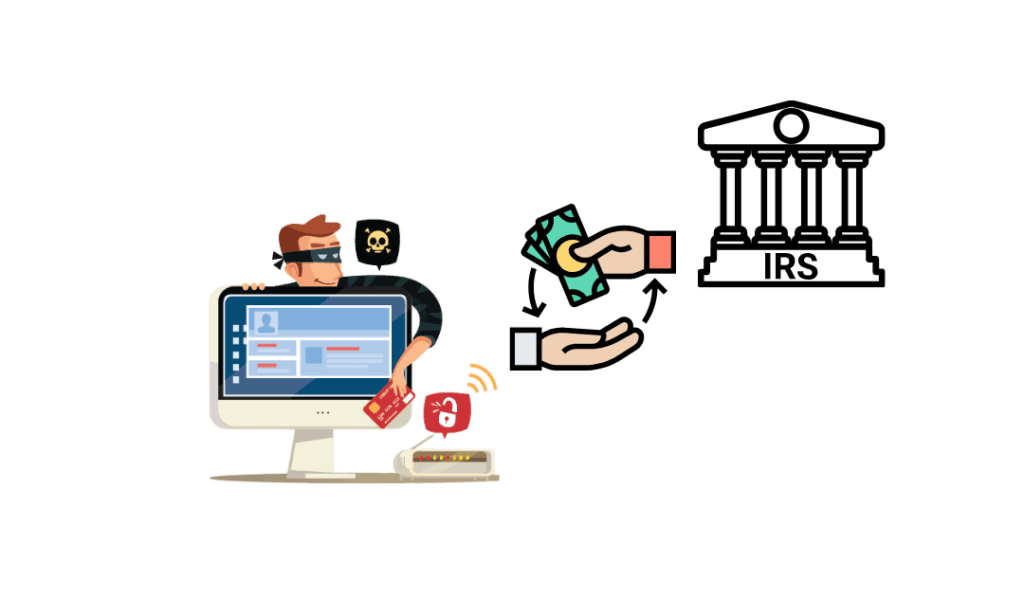As the new year begins, it’s a great time to get ahead on your financial planning—including preparing for tax season. However, identity theft poses a growing threat to taxpayers, making it crucial to understand how to protect yourself.
Tax-related identity theft can lead to significant delays, frustration, and even financial loss.
1. What Is Tax-Related Identity Theft?
Tax-related identity theft occurs when someone uses your personal information—such as your Social Security number (SSN)—to file a fraudulent tax return and claim a refund. Victims often only discover the theft when they attempt to file their legitimate return and the IRS notifies them of a duplicate filing.
- Key Warning Signs: Receiving an IRS notice about a tax return you didn’t file, being unable to e-file due to a duplicate return, or noticing suspicious activity in your IRS account.
- Common Targets: Taxpayers with large refunds, those eligible for credits like the Earned Income Tax Credit (EITC), and individuals whose personal information was compromised in data breaches.
Pro Tip: Regularly monitor your IRS account to detect unauthorized access early. You can create an account at IRS.gov.
2. Steps to Take Before Tax Season to Prevent Theft
Taking preventive measures early can significantly reduce your risk of becoming a victim of tax-related identity theft. Here’s what you can do:
- File Early: Submit your tax return as soon as possible to reduce the chances of fraudsters filing ahead of you.
- Secure Personal Documents: Store your Social Security card, W-2 forms, and tax documents in a safe location. Shred sensitive paperwork you no longer need.
- Enable IRS Identity Protection PIN (IP PIN): Request an IP PIN from the IRS, a six-digit code that adds an extra layer of security to your tax return.
- Beware of Scams: Avoid clicking on links in unsolicited emails claiming to be from the IRS. The IRS will never initiate contact via email or text.
- Freeze Your Credit: Consider placing a credit freeze to prevent unauthorized use of your financial information.
Pro Tip: Educate yourself about the IRS’s legitimate methods of communication to spot and avoid phishing scams.
3. How Tax-Related Identity Theft Affects You
Identity theft can significantly disrupt your tax filing process and financial stability:
- Filing Delays: Victims may face long delays as the IRS investigates fraudulent returns and resolves their cases.
- Lost Refunds: Fraudsters may intercept your tax refund, requiring additional steps to recover it.
- Credit Impact: Identity theft can extend beyond taxes, potentially damaging your credit score and financial records.
Pro Tip: Act quickly if you suspect identity theft to minimize its impact on your finances and tax filing process.
4. IRS Support for Identity Theft Victims
The IRS offers several programs and resources to assist victims of tax identity theft:
- Identity Theft Central: The IRS’s dedicated webpage offers comprehensive guidance on handling identity theft, reporting fraudulent activity, and protecting your information. Visit Identity Theft Central for step-by-step instructions.
- Identity Protection Specialized Unit: Contact the IRS at 800-908-4490 for personalized assistance with identity theft cases.
Pro Tip: Utilize these resources as soon as you notice any suspicious activity to expedite resolution.
5. Real-Life Examples of Tax Identity Theft
Understanding real-life scenarios can help you recognize risks and avoid falling victim:
- Duplicate Filing: A taxpayer attempts to e-file but receives an error stating a return has already been submitted under their SSN.
- Fraudulent Refunds: A scammer uses stolen information to claim a large refund, leaving the victim to resolve the issue with the IRS.
- Business-Related Theft: A small business owner discovers their Employer Identification Number (EIN) has been used to file a fraudulent return.
Pro Tip: Regularly monitor your IRS account and credit reports to detect unauthorized activity early.
6. Tax Identity Theft in the Context of Small Businesses
Small businesses are increasingly targeted for tax-related identity theft:
- EIN Fraud: Scammers file fraudulent returns using a business’s EIN to claim refunds.
- Payroll Data Breaches: Data breaches involving payroll systems can expose employee SSNs, leading to widespread tax fraud.
- Phishing Scams: Fraudsters impersonate tax authorities to trick business owners into providing sensitive information.
Pro Tip: Train employees on cybersecurity best practices and limit access to sensitive data within your organization.
7. Include More Statistics
Adding context with data highlights the scope of the issue:
- IRS Statistics: The IRS stopped over $2 billion in fraudulent refunds in 2023 by detecting identity theft early.
- Rising Threat: Reports of tax-related identity theft increased by 15% in 2024, driven by phishing scams and data breaches.
- High-Risk Groups: Individuals with large refunds and small business owners are among the most targeted demographics.
Pro Tip: Use IRS data to stay informed about evolving threats and implement stronger safeguards for your information.
Take Action, Be Proactive.
Tax identity theft is a serious issue, but with the right precautions, you can protect yourself and your finances. By securing your personal information, filing early, and staying vigilant against scams, you can reduce your risk and enjoy a smoother tax season in 2025.
We’re here to help clients with any tax problem!
Schedule a free consultation today and get expert support for your tax needs.
Frequently Asked Questions (FAQ) About Tax Identity Theft
1. How can I tell if I’m a victim of tax-related identity theft?
Common signs include receiving an IRS notice about a duplicate return, being unable to e-file, or noticing unexplained activity in your IRS account.
2. What is an IP PIN, and how does it help?
An Identity Protection PIN (IP PIN) is a six-digit number issued by the IRS to prevent unauthorized use of your Social Security number on tax returns. It adds an extra layer of security to your filings.
3. Can tax identity theft affect my credit score?
Yes, if fraud extends beyond taxes, such as opening unauthorized credit accounts, it can impact your credit score. Monitor your credit reports regularly.
4. How long does it take to resolve tax identity theft?
Resolving tax identity theft can take several months as the IRS investigates and processes your case. Staying proactive and organized can help expedite the process.
5. What should I do if I’ve shared personal information with a scammer?
Immediately contact the IRS, monitor your credit, and consider placing a fraud alert or credit freeze on your accounts to minimize further risks.






